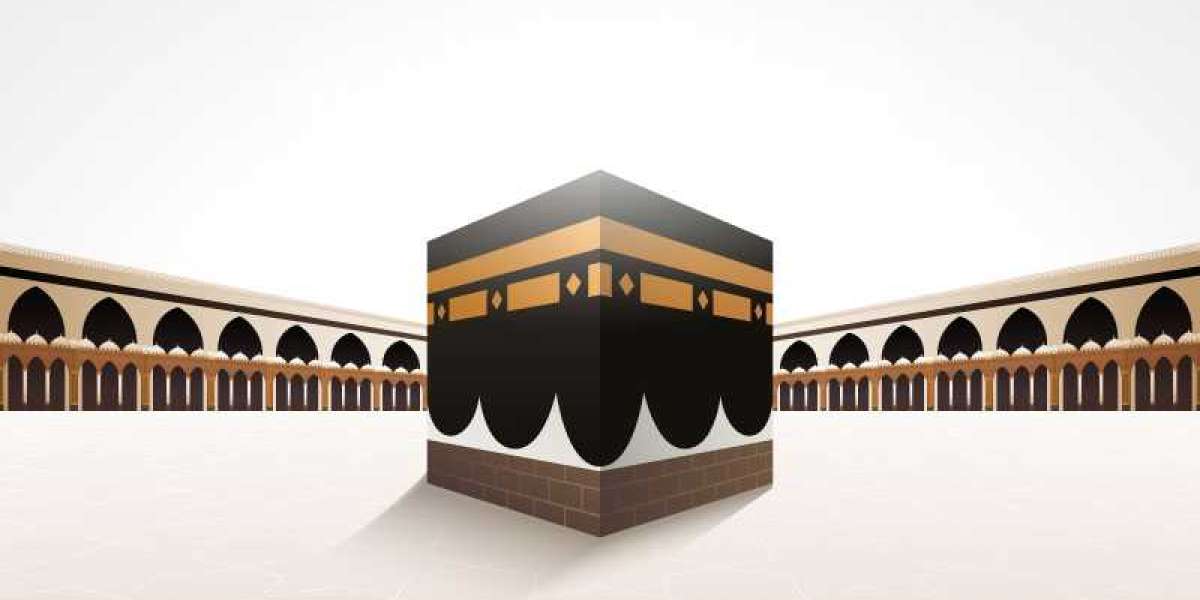The journey of Umrah is a profoundly spiritual experience, a unique opportunity to stand in the purest lands and draw closer to Allah (SWT). It’s a time when hearts are open, prayers are fervent, and every moment feels like a blessing. At the core of this spiritual connection is Dhikr, which simply means the remembrance of Allah. It involves reciting specific phrases, Quranic verses, or silently reflecting on His names and attributes. Dhikr is the lifeline of a believer, keeping us connected to our Creator in every aspect of life.
However, despite the immense spiritual atmosphere, Umrah can also be physically demanding and mentally overwhelming. The long flights, bustling crowds, tight schedules, and moments of fatigue can sometimes make it challenging to maintain a consistent Dhikr routine. The aim of this article is to provide you with practical ways and helpful tips to stay connected through meaningful Dhikr throughout your Umrah journey, ensuring you maximize every sacred moment.
The Significance of Dhikr During Umrah (The "Why")
Why is it so crucial to hold onto your Dhikr routine during Umrah? The benefits are immense, touching every aspect of your pilgrimage.
Amplifying Spiritual Benefits
Firstly, Dhikr plays a vital role in amplifying your spiritual benefits. Performing Dhikr, especially in the holy lands of Makkah and Madinah, carries multiplied rewards. Every recitation, every moment of remembrance, earns you countless blessings. More importantly, Dhikr fosters a constant awareness of Allah's presence. It helps you feel His closeness, making your worship more heartfelt and sincere. In moments of stress, tiredness, or feeling overwhelmed by the crowds, turning to Dhikr can bring immediate inner peace and tranquility. It calms the heart and mind, reminding you that Allah is with you, overseeing every step of your journey.
Enhancing Umrah Rituals
Dhikr isn't just an addition to your Umrah; it's the very essence of the rituals. During Tawaf (circumambulating the Kaaba) and Sa'i (walking between Safa and Marwah), Dhikr fills those actions with deeper meaning. Instead of simply completing the physical movements, your heart is engaged in remembrance, turning each circuit into a profound conversation with Allah. Similarly, when you perform your Salah (prayers), engaging in Dhikr before and after helps enhance your concentration and sincerity. It cleanses your mind of worldly thoughts and allows you to focus purely on your devotion. On a more practical note, Dhikr can even help in overcoming physical fatigue. When your body feels tired, your spirit can draw energy from the remembrance of Allah, giving you strength to continue your acts of worship.
Sustaining Spiritual Momentum
Umrah is a journey of high spiritual momentum. Dhikr is your shield against distractions, helping you guard against the many things that can pull your focus away from worship, such as managing logistics, navigating crowds, or simply feeling tired. By keeping your tongue and heart moist with Dhikr, you maintain your focus on your primary purpose. Furthermore, consistently engaging in Dhikr during Umrah can help in cultivating a lasting habit. The discipline and spiritual elevation you experience during the pilgrimage can carry over into your daily life back home, turning Dhikr into a regular and cherished practice long after your journey concludes.
Practical Ways to Stay Connected Through Dhikr (The "How")
Now that we understand why Dhikr is so important during Umrah, let's explore practical ways to incorporate it into every part of your journey.
Pre-Umrah Preparation
The journey of Dhikr begins even before you set foot in the holy lands. Pre-Umrah preparation is vital. Start by learning key Dhikrs and their meanings. Memorize phrases like Tasbih (SubhanAllah - Glory be to Allah), Tahmid (Alhamdulillah - All praise is due to Allah), Tahlil (La ilaha illallah - There is no god but Allah), Takbir (Allahu Akbar - Allah is the Greatest), Istighfar (Astaghfirullah - I seek forgiveness from Allah), and Salawat (sending blessings upon the Prophet Muhammad, peace be upon him). Understanding what you are saying makes your remembrance more heartfelt. Setting intentions is also crucial; consciously decide that maintaining your Dhikr will be a priority throughout your trip. Finally, make sure you've considered packing essentials that can aid your routine, such as a small set of prayer beads (Tasbih), a mini Quran, or a compact Dhikr guide. These can be valuable companions on your journey.
During the Journey (Travel Waiting Times)
The journey to the holy lands itself offers abundant opportunities for Dhikr. Use the airports and flights to your advantage. Instead of getting lost in digital entertainment or worrying, utilize waiting times for silent or quiet Dhikr. Recite in your heart or whisper phrases. During transportation, whether it's a long bus ride from the airport to your hotel or short walks between locations, make these times purposeful with Dhikr. Let every moment of movement be a remembrance. Even while waiting for prayers in the mosque, fill those gaps before the Adhan and Iqamah with remembrance instead of checking your phone or talking.
Within the Harams (Makkah Madinah)
The Grand Mosques in Makkah and Madinah are the heart of your Umrah. Maximizing time in the mosques for Dhikr is essential. After performing your congregational prayers, instead of rushing out, try to sit and engage in Dhikr. You'll find many people doing the same, creating a beautiful atmosphere of devotion. During Tawaf and Sa'i, there are specific Dhikrs and supplications that are recommended, but you can also recite your personal supplications. The key is to keep your tongue and heart engaged. Even while resting inside the Haram, turn moments of quiet rest into opportunities for quiet remembrance. You might be tired, but a simple 'Alhamdulillah' or 'SubhanAllah' can be made effortlessly.
Incorporating Dhikr into Daily Activities
Dhikr isn't just for prayer times or inside the mosque; it can be woven into almost all your daily activities. Make every walking and moving step a form of worship by reciting Dhikr. When you're eating and drinking, begin with Bismillah (in the name of Allah) and end with Alhamdulillah (all praise is due to Allah). This simple act turns mundane tasks into acts of worship. Remember to recite specific morning and evening Dhikrs before sleeping and upon waking, as taught by the Prophet (PBUH). These fortify your day and night with remembrance. Many pilgrims choose to join a group umrah packages usa where guided tours often incorporate these daily practices, making it easier to maintain consistency.
Utilizing Tools and Resources
Don't hesitate to utilize tools and resources that can aid your Dhikr routine. Digital aids like Dhikr apps or Quran apps on your phone can be useful reminders, but remember to use them quietly and respectfully, without disturbing other pilgrims. If available and appropriate, participating in group Dhikr sessions can be incredibly uplifting and motivating. The collective remembrance enhances the spiritual atmosphere. Finally, if you're traveling with experienced pilgrims or part of a guided tour, such as a rabbi-ul-awwal group usa, seeking mentorship or companionship can be beneficial. You can learn from their practices and be encouraged by their consistency.
Overcoming Challenges and Maintaining Consistency
The journey won't be without its challenges, but a strong intention can help you navigate them.
Dealing with Fatigue
Fatigue is common during Umrah due to physical exertion and time zone changes. While it's important to prioritize rest, even short breaks can be used for Dhikr. Instead of zoning out, close your eyes and silently recite.
Managing Crowds
The crowds can sometimes be overwhelming. If you find it hard to focus amidst the throngs, seek out quieter corners if possible, or shift your focus to internal remembrance. Your heart's Dhikr is just as powerful as vocal recitation.
Staying Motivated
There might be moments where you feel your motivation dip. At such times, remind yourself of the immense rewards and the sacredness of the journey you're on. Think about the spiritual transformation you seek and the blessings you hope to achieve.
Forgiveness for Lapses
Lastly, don't be disheartened by missed opportunities or lapses in your routine. Umrah is a journey of mercy and forgiveness. If you miss a Dhikr or feel you haven't been consistent, simply resume with a renewed intention. Allah is the Most Forgiving, and He appreciates your sincere efforts.
Conclusion
Maintaining a consistent Dhikr routine during Umrah is not just a beneficial practice; it's a transformative one. It deepens your connection with Allah, enhances every ritual of your pilgrimage, and fills your journey with profound spiritual meaning. By preparing beforehand, utilizing travel and waiting times, maximizing your moments in the holy mosques, and integrating Dhikr into your daily activities, you can stay continuously connected to your Creator. Despite the challenges of fatigue or crowds, a conscious effort and sincere intention will allow you to uphold this blessed remembrance. May your Umrah be filled with constant remembrance of Allah, and may the spiritual connection you build during this sacred journey continue to illuminate your life long after you return home.








